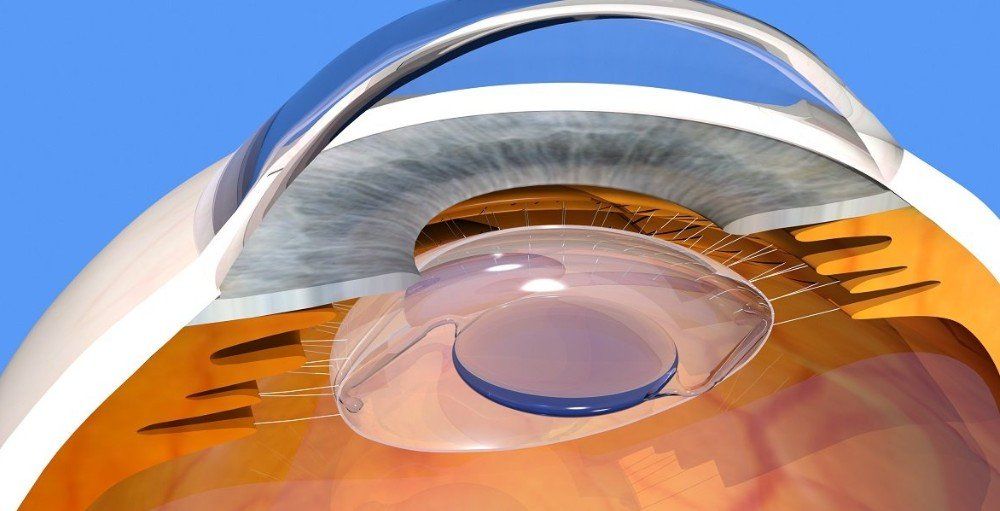Your trusted local source of superior eye care for you and your family.
Intraocular Lens Implants (IOLs) for Clear, Sharp Vision

Intraocular lenses, also known as lens implants or IOLs, are designed to replace the natural lenses of the eye in order to correct a variety of vision problems, including cataracts and various refractive errors. As a part of a commitment to advanced vision care technology, our practice offers a variety of advanced intraocular lenses to best meet the needs of many different patients. Used properly, IOLs have the potential to dramatically improve a patient's vision.
Monofocal Lenses
Monofocal IOLs are the simplest and most cost-effective lens implants currently available. They are designed to provide clear vision at a single focal depth (generally long distance), so patients who choose monofocal lenses typically require glasses or contact lenses to achieve clear vision at all focal distances.
Toric IOLs
Toric lens implants are specifically designed for patients who suffer from astigmatism. This unique refractive error is the result of inconsistent curvature in the eye, which causes a variety of symptoms including blurry vision and headaches. In some cases, astigmatism can be corrected with LASIK. For astigmatic patients who are not good LASIK candidates or who suffer from an additional vision problem that cannot be corrected with laser surgery, toric IOLs are a good alternative.
Multifocal/Accommodating Lenses
The most advanced intraocular lenses are designed to provide clear vision at a variety of focal depths. Because these lenses are more flexible, patients who choose them are able to minimize their dependence on glasses and contacts in their daily lives.
Many designs are available, and Dr. Cox works closely with each patient to identify the best option. Multifocal lenses are typically designed so that different parts of the lens are used to see clearly at various focal depths. For example, some designs use concentric rings adapted to a range of focal depths.
Another option is extended depth of focus implants which allow for intermediate (computer) vision, as well as, excellent distance vision with some reading vision. Some patients choose a combination of different implant types for best overall vision. Dr. Cox will provide guidance with this choice.

Monday - 8:30 - 5:30
Tuesday 9:00 - 5:00
Wednesday 8:30 - 5:30
Thursday 9:00 - 5:00
Friday 9:00 - 4:00
Copyright © 2023 Dr. Gregory Cox. All Rights Reserved.
